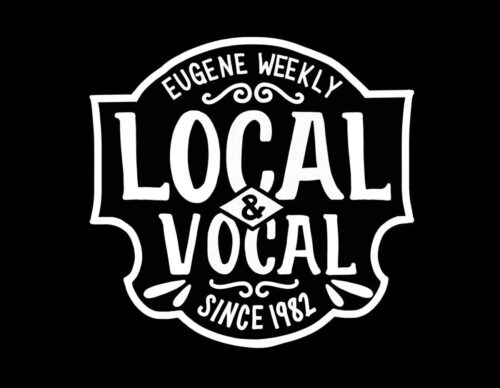
Eugene Weekly’s June 15 cover story “Where’s the Humanity?” described how sad and ultimately unjust Eugene’s policies are towards the homeless. Here we are, living in one of the most liberal cities in the country, and yet — when the rubber meets the road, we find a city that ultimately creates a non-humane environment for those of us that have the least. As liberals, we are living a lie.
Why is this? I know that the city of Eugene is filled with honest and good people who try to do the best job they possibly can. A good part of the problem is the city charter, which is designed to neuter elected officials for the sake of management efficiency. Having elected officials with more accountability for daily operations of city government would be nice, but that’s not going to happen in the near future. For government structure, we have to play with the cards that have been dealt to us.
So instead, I’d like to appeal to our collective better angels. The city government needs to rethink its positions, because its current regulations on camping are pretty much a joke. Are we going to supply every homeless person with a tape measure? Why are homeless camps prohibited 1,000 feet from a school? Are they that big a threat to young, impressionable high school seniors?
All of this was done, supposedly, to legally comply with the 9th Circuit Court of Appeals decision Martin v. Boise. I contend that the recent policy changes have substantially made Eugene less legally safe, and more vulnerable to legal challenges.
Homeless case law today is very similar to the state of civil rights legislation in the late 1940s. A future Supreme Court case on the magnitude of Brown v. Board of Education would no doubt set off legal requirements that will be more expensive to implement in the future. A locally based lawsuit could easily develop as well with the same results, and the byzantine nature of new city standards has made matters worse. For example, showing a city map where camping is allowed was not done. I made a joke about the map requirement. The city of Eugene did submit a map. It was of the city of Springfield!
Eugene needs to be motivated to rethink its positions again — simply because it’s in the city’s self interest to do so as quickly as possible. And a good deal of “legal fireproofing” is not costly, and it’s easy to implement.
First, a city ballot measure should be put together to authorize $100 million for low income and moderate income housing. While I would support this enthusiastically — even if the measure failed — such an action would demonstrate that the city was making a large-scale good faith effort to tackle the problem head on.
Another easy approach would be the establishment of daily fee campgrounds. At least two 30-unit facilities should be available both for campers and vehicles, complete with rules and facilities for short-term living. And fees could be set to cover all infrastructure and operating costs on a break-even plus basis.
Other steps that can be taken include obtaining federal or state money for converting empty commercial space into low income housing, SROs (single room occupancies), or other housing modalities that are not currently available.
Increased lobbying in Salem and Washington, D.C., is necessary for obtaining a more robust mix of mental health and drug/alcohol treatment. Nationally, Oregon is ranked 49th for mental health, and 47th for drug/alcohol services.
Eugene is in dangerous waters. The car is going down the road, and the warning light is on. Clearly, the mechanic’s diktat operates here: You can pay me now, or you can pay me later.